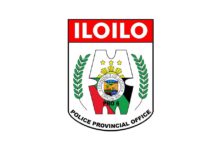
BY GEROME DALIPE IV
ILOILO City – CityNet, a network of cities focused on sustainable urban development, has recommended strategies for this metropolis’ inclusive and sustainable urban growth.
Vijay Jagannathan, secretary-general of the CityNet, noted that embedding inclusivity and sustainability into its development agenda, Iloilo City can grow in a way that benefits all residents while preserving its rich cultural and natural heritage.
“Sustainable growth requires not only providing all your citizens with the basic services, but also making sure that the contribution to the global effort is also kept sustainable,” Jagannathan told reporters.
More than 100 urban leaders and stakeholders from Asia Pacific region gathered at the Iloilo Convention Center for the 44th CityNet ExeCom Meeting from Nov. 18-20.
The meeting, themed “Living the Sustainable Development Goals (SDGs): A Shared Future for All”, underscored a unified commitment to achieving the SDGs and promoting urban sustainability through collaboration and innovation.
The event brought together ranking officials from across the region to exchange ideas and share best practices in addressing urban challenges, reaffirming the role of regional partnerships in driving sustainable development
Jagannathan emphasized a holistic approach to Iloilo City’s urban development, underscoring both environmental and social dimensions.
He stressed that it is essential for the city government to ensure all residents have equitable access to fundamental services such as water, sanitation, electricity, healthcare, and education. This creates a foundation for inclusive urban growth.
He said that cities must align local efforts with global sustainability goals, such as reducing greenhouse gas emissions, conserving energy, and adopting renewable resources.
Jagannathan underscored transitioning from a linear economy to a circular economy highlights the critical need for waste management strategies that transform waste into resources.
He added that cities, like Iloilo City, should aim to emulate nature, where waste is reused or transformed into valuable inputs rather than discarded.
Jagannathan said effective waste segregation, recycling, and upcycling systems must be implemented to ensure that materials like plastics, paper, and organic waste are not sent to landfills but repurposed.
Organic waste, such as food scraps and human waste, can be converted into biogas (methane) or compost, he pointed out.
He stressed that methane’s high value as a renewable energy source underscores the economic and environmental potential of organic waste.
“If you take the carbon out of just your city’s waste, you can earn for just the waste which the city is producing, and is being produced every day,” he said.
Effective waste segregation, recycling, and upcycling systems must be implemented to ensure that materials like plastics, paper, and organic waste are not sent to landfills but repurposed, he added.
Jagannathan said that organic waste, such as food scraps and human waste, can be converted into biogas (methane) or compost.
Methane’s high value as a renewable energy source underscores the economic and environmental potential of organic waste, he explained.
In addition, Jagannathan the city government should transition to sustainable transportation systems, encourage non-motorized mobility (like walking and cycling), and promote the use of eco-friendly public transit options like electric jeepneys.
He suggested integrating urban policies with health benefits, such as fostering walkable neighborhoods, creating cycling lanes, and reducing air pollution.
As Iloilo City expects population growth in coming years, Jagannathan suggested to the city officials to begin pilot programs for electric jeepneys or buses, providing subsidies or incentives for operators to transition from diesel-powered vehicles.
He said that it is also essential for the city government to develop a master plan that integrates land use, transportation, housing, and environmental considerations.
The city government should also focus on green urban infrastructure, like parks, green belts, and water management systems, to balance development with nature.
He mentioned that investing in efficient and eco-friendly mass transit systems is also essential to reduce traffic congestion and emissions, while promoting walkability and cycling infrastructure.
Empowering local communities to participate in managing urban resources is a cornerstone of sustainable development.
By involving residents in decision-making and resource management, Jagannathan stressed that Iloilo City can enhance local ownership and develop solutions that address the unique needs of its communities./PN





